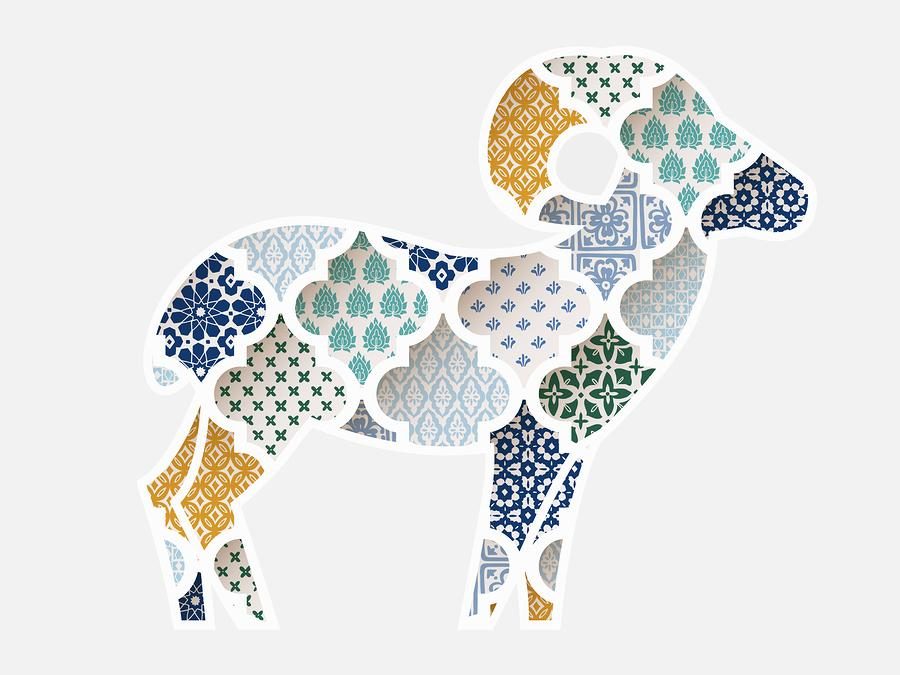To offer your Oudhiya, please click here: https://almadinah-center.org/en/udhiya-2021/
Oudhiya-Qurbani is a sacred act that is performed by all Muslims during the days of Eid-ul-Adha and three days that follows (10-13 Dhul Hijjah). In order to perform Oudhiya – Qurbani, a muslim must sacrifice a large animal (goats, sheep, cows, camels, etc). This is more than simply the slaughtering of an animal, the root of the word Qurbani comes from the word ‘Qurb’ which means ‘nearness’ in Arabic. The same for the root of Oudhiya which is sacrifice. In performing this ritual we sacrifice properly to get closer to Allah. Thus the act of Oudhiya – Qurbani is an act of sacrifice, piety, and submission to the One and Only God (Allah).
In the Qur’an Allah (SWT) has said the following verses:
- “Indeed, Allah only accepts from the righteous [who fear Him].” (5/27)
- “Neither their meat nor blood reaches Allah. Rather, it is your piety that reaches Him.” (37/22)
The history of Oudhiya – Qurbani stretches back to the very beginning with the two sons of prophet Adam (as), who made sacrifices to Allah. In the Qur’an it is mentioned thus:
“And recite to them the story of Adam’s two sons, in truth, when they both offered a sacrifice [to Allah ], and it was accepted from one of them but was not accepted from the other. Said [the latter], “I will surely kill you.” Said [the former], “Indeed, Allah only accepts from the righteous [who fear Him].” (5/27)
Prophet Ibrahim (as) was also commanded to perform a sacrifice. He was commanded to attempt to sacrifice the most beloved to his heart (his son prophet Ismail). It was a hard trial of submission. Once Ibrahim (as) moved to perform his task, Allah sent down to him a heavenly ram to teach him and teach us what to sacrifice and how. In the Qur’an it is said:
When they had both submitted to Allah, and he had laid his son down on the side of his face, and then We called out to him, “O Ibrāhīm, you have fulfilled the dream.’ This is how We reward those who do good. Indeed, this was the clear trial. And We ransomed him with a great sacrifice. And We left for him [favorable mention] among later generations: “Peace be upon Ibrahim.“(103-109/37)
While it is not considered to be mandatory by most schools of thought in Islam (except for the Hanafi), but it is considered as an important Sunnah performed by the Prophet (pbuh) and should not be ignored voluntarily. There are certain rules that should be observed when performing Qurbani for it to be valid. Qurbani is considered sunnah on any muslim who posseses nisab amount of wealth, i.e who is eligible to pay zakat. It is possible for muslims to make Qurbani on behalf of someone else. It is reported thus in the hadith:
“The Prophet (pbuh) sacrificed for the one who could not sacrifice from his ummah, one who bore witness to the Oneness of Allah and [his] Prophethood”. (Tabarani and Ahmad)
Qurbani should only be performed after the Eid prayer and the one who wishes to perform the act of slaughtering the animals should avoid cutting his hair and nails. It has been reported in the hadith:
- “Every person who is sacrificing an Animal should stop from trimming hair and cutting nails from the start of Dhul Hijjah until he has performed the sacrifice.” (Muslim)
- “Whoever slaughtered the sacrifice before the prayer, he just slaughtered it for himself, and whoever slaughtered it after the prayer, he slaughtered it at the right time and followed the tradition of the Muslims.” (Bukhari)
- “Whoever has offered his sacrifice before the prayer, should repeat it (offer another sacrifice).” (Bukhari)
We as muslims should strive always to follow the example of the Prophet Muhammad (pbuh) because in doing so we gain great favour and blessings from Allah both in this life and in the Hereafter.
May Allah accept your sacrifice and grant us all acceptance for our good deeds.
To request Oudhiya – Qurbani share, please fill this form


Recent Comments